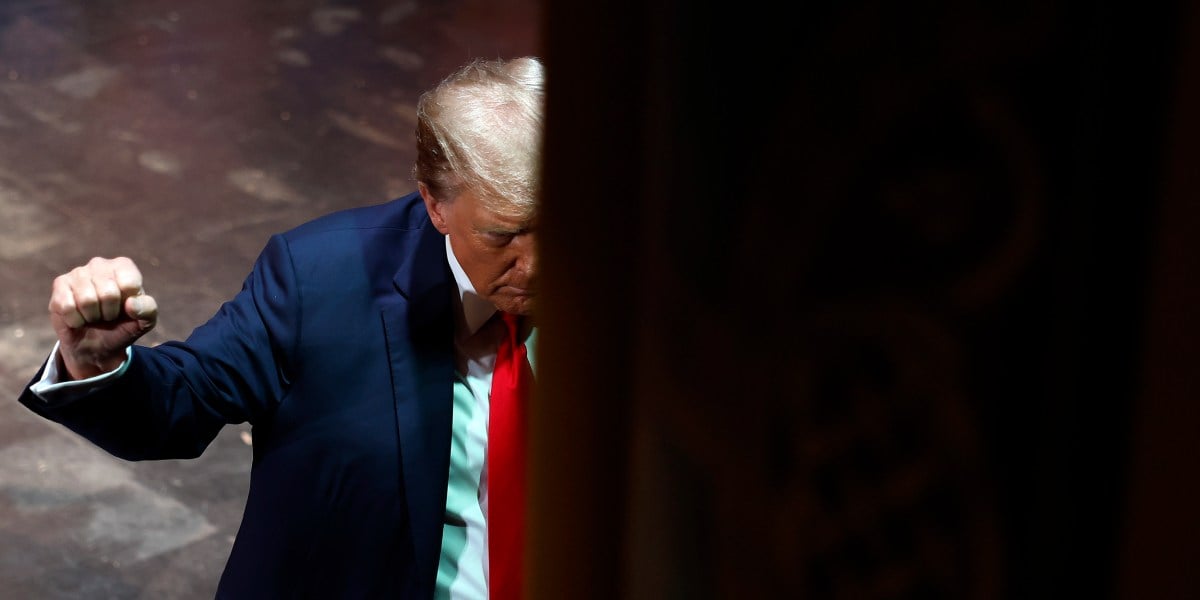"Progressives should not make the same mistake that Ernst Thälmann made in 1932. The leader of the German Communist Party, Thälmann saw mainstream liberals as his enemies, and so the center and left never joined forces against the Nazis. Thälmann famously said that ‘some Nazi trees must not be allowed to overshadow a forest’ of social democrats, whom he sneeringly called ‘social fascists.’
After Adolf Hitler gained power in 1933, Thälmann was arrested. He was shot on Hitler’s orders in Buchenwald concentration camp in 1944."



No third party has reached those thresholds in years.
2020:
2016:
2012:
2008:
2004:
2000:
And before then?
Even if the threshold for funding and ballot access isn’t met, voting third party helps get your party at events, tells the major parties how popular their platform is and builds support and awareness.
The last time a 3rd party got any significant portion of the vote was Ross Perot in '92 and '96, it had 0 significance.
https://en.m.wikipedia.org/wiki/1992_United_States_presidential_election
https://en.m.wikipedia.org/wiki/1996_United_States_presidential_election
18.91% in '92, 8.4% in '96.
Before that, you have to go back to '68 where a racist 3rd party won 13.5% of the vote, and the South, also had no significance beyond that election.
https://en.m.wikipedia.org/wiki/1968_United_States_presidential_election
I think you’re making a mistake here. You’re gonna wanna stick with stuff like you had before where you imply nothing can change.
Perot 92 and 96 were extensively studied and had far reaching effects on domestic policy, campaign strategy and both gave rise to the spoiler/throwing your vote away discourse in the modern day and were also proof that it was false after people had time to study the results.
I remember after 92 people would spit on the ground when you brought up nafta. They didn’t know about it before the election that year and the deal was all but signed at that point. Perot dragged that thing into the light and that campaign is the reason trump could speak to people’s memories when he said how bad it was and talked up how good the usmca would be (even though it’s basically a continuation).
I like when people bring up the reform party because there were lots of well studied measurable effects and they didn’t come from serious disciplined parties like one might think of psl or something as but from the abstract, goofy reform party. They even fucked up in 92 and had a little will-they won’t-they drop out.
There’s some study or article in the 92 Wikipedia article that references people’s exit poll sentiment that they “would have voted for Perot if they thought he could win”. Not just in passing either, but reaching the conclusion that he could have won if those people had voted for him.
Did they not vote for him because they didn’t think he was for real after the drop out?
Would the reform party have been able to make more of Perot clowning on hw and Clinton if it had been running candidates in downballot races?
On a more touchy-feely level, I wouldn’t be bringing up how the American political system is most vulnerable to third parties when its sclerotic leadership is struggling to differentiate some of its two parties policies.
Not if I wanted to convince people not to vote third party at least.
LOL - Perot, and his charts, changed nothing. He became a punchline in '96 with his “Ok, I dropped out, no, wait, I’m still in.”
His supporters went on to Ron Paul, who was equally ineffective.
Perot absolutely had an effect on American politics. I already brought up nafta which is the obvious thing for anyone who remembers that time, but did you know that his particular type of outsider conservative populism has been compared to trump?
I didn’t, but it’s easy to see him as a precursor to 2016.
Like I said before, you’re making a mistake saying third parties can’t be effective. One of the legs of the argument against third parties is that they’ll have an effect on the election! Not to mention the obvious truth that third parties have pushed and pulled major party platforms!
It’s better to stay with the mopey, “nothing can change” argument instead. At least people who already believe that will agree with you. Suggesting third parties don’t have an impact is both provably false and undermines your point.
As we all know, time doesn’t pass and yesterday is today. Nothing ever happens for any reason. The world is exactly the same as it was decades ago.
Tell you what, I’ll put my money where my mouth is. I’ll personally donate $1,000 to any 3rd party that cracks 3% nationally in the upcoming election.
You don’t have to, that isn’t my point. My point is that countless quantitative changes over time result in qualitative ones. Society is wildly different as Capitalism continues to decay, and the 2 parties continue to move forward with that decay. There will be a turning point.